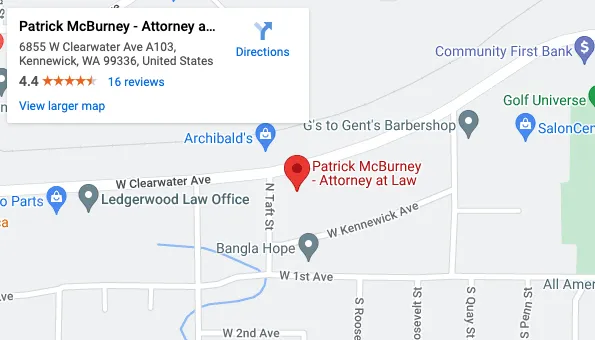If you’re behind on paying your debts, such as medical bills and credit cards, creditors or collection agencies may take action by pursuing a court order for wage garnishment. It is a way for them to receive payment by seeking a garnishment order. The order would require your employer to withhold a portion of your paycheck and send it to your creditors. This form of debt collection will help reduce the balance you owe, but it may also increase your debt in the long run.
Left without your entire paycheck, you may be looking for alternative sources to help pay your bills. You may potentially turn to credit cards and personal loans with high-interest rates, keeping you stuck in the same place or even deeper financial strain.
Learning how wage garnishment happens and gaining a deeper understanding surrounding the terms is essential. Then we will review some options you have to stop the garnishment.
Understanding Wage Garnishment
Why do Creditors Utilize Wage Garnishment?
While garnishing your wages often is not the first step creditors may take in collecting debts owed, they may resort to it if other collection efforts have failed or they may be close to reaching the statute of limitations on your debt. This statute is the legal deadline they have for attempting to collect.
To collect via wage garnishment, creditors must first sue you and obtain a judgment in court. This judgment allows them to request a court order for your wages to be garnished, which they will forward to your employer upon receipt.
A garnishment can be enforced without going to court if you are behind on debt obligations such as student loans, alimony, etc. This is called administrative wage garnishment.
Creditors are not legally allowed to take money out of your bank account. The judgment and court order received dictate the steps they must take to enact the garnishment.
How Much of My Paycheck Can Creditors Garnish?
Federal law dictates that creditors cannot garnish more than 25% of your disposable income (income after taxes and legally required deductions). Or they are limited to 30 times the federal minimum wage of your take-home income – no more than that. They must use whichever standard is less in your unique situation.
Options for Stopping Wage Garnishment
If a creditor has filed a lawsuit against you, it is crucial that you not ignore it. Although this situation can be stressful and overwhelming, you may only speed up the process if you don’t respond. A lack of communication can give your creditors the legal right to pursue a default judgment.
Here are some suggestions for how to stop wage garnishment:
Communicate with Creditors
A little communication can go a long way if you have a creditor pursuing a garnishment against you. Try contacting them to see if you can negotiate a monthly payment that will be more manageable for you and work for them. Alternatively, you may be able to negotiate a lump sum that would take care of the debt, freeing you from the stress of dealing with a monthly payment and appeasing the creditor. This is called a debt settlement.
You can take these actions before or after a wage garnishment has begun, although it is harder to reach a debt settlement or negotiate a payment plan afterward.
Pursue Exemptions or Challenge the Garnishment Altogether
Once a copy of the court order for garnishment is sent to your employer, you will receive a copy. Depending on your state, you will have a set number of days to either pursue an exemption or challenge the garnishment altogether.
To use exemptions to gain relief from wage garnishment, you must file a claim of exemption. The exemptions apply to certain income types such as disability, retirement, or child support.
You may be able to challenge a garnishment if the creditor is garnishing an amount more than federal law allows. Or if they did not follow the correct proceedings for pursuing the judgment and court order.
Set Up a Repayment Plan and Consider Consolidating Your Debt
Several nonprofit organizations with credit counselors can advise and assist you with consolidating your debt and creating a payment plan.
Debt consolidation or refinancing your debt may be difficult after your wages are already being garnished. The process would involve applying for a loan to pay off all other debts. If you can qualify, it may be a good option for you.
You can set up a repayment plan with a counseling organization that can manage your plan for you rather than your creditors.
File Bankruptcy
Hire an experienced bankruptcy attorney to advise whether filing chapter 7 bankruptcy or chapter 13 bankruptcy may be your best course of action. Filing bankruptcy is a more extreme option, but it may be best for you if you don’t have the means to pay off and get out from under your debts. An automatic stay goes into effect as soon as you file for bankruptcy, giving you immediate relief from wage garnishment.
Take Action Today
If you are experiencing wage garnishment and want to stop it, it is crucial to seek legal advice from an experienced attorney. Contact the law office of Patrick McBurney to schedule your consultation and take action towards debt relief and a fresh start today!


